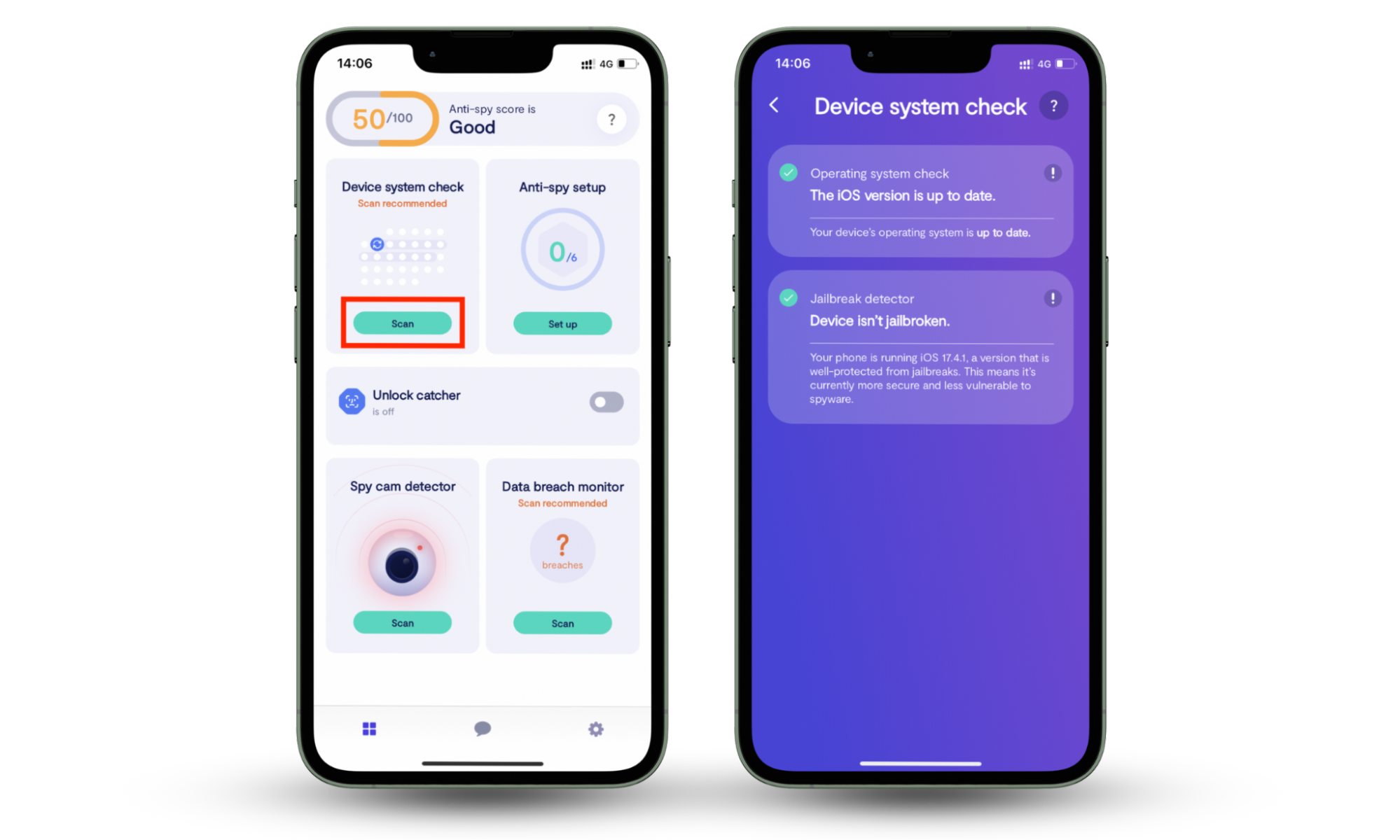Table of contents
Free vs. paid antivirus software: What’s the difference?
The main difference between paid and free antivirus is the range of features they offer. Free antivirus provides you with basic protection, while paid ones offer extra features for bulletproof security.
If you use your phone just to check email, read news, and watch YouTube or Netflix from time to time, free antivirus will do. However, if you work on a computer, store crucial data digitally, or own several smart tech devices, a paid solution is a great investment in your digital safety.
That said, there’s no exact answer on whether paid antivirus is better than a free solution. It all depends. So, let’s take a closer look at each option.
Free antivirus software features
The main purpose of any free antivirus is to provide basic protection. Common free antimalware tools include two core functions:
- On-demand scanning. Scanning your device for malware is the primary function of any cybersecurity software. By deleting malware, antivirus programs leave little chance for hackers to get ahold of your data and use it to their advantage.
- Real-time protection. Antivirus software monitors your device in real-time and blocks different kinds of malware from infecting it. For example, blocking ransomware protects against cybercriminals encrypting your data and files to make ransom demands.
Does free antivirus really work? Yes, it does. But remember that it’ll provide only a bare minimum of security. So, if you want an extra layer of protection, consider choosing a paid anti-malware solution.
Paid antivirus features
Digital security is a hot topic, and the number of antivirus solutions has grown rapidly. The leading cybersecurity software providers offer protection functionalities beyond the standard detect-and-remove set of features. For example:
- Parental control. Cybercriminals target children because they often don’t recognize or avoid danger online. Parental control lets you block certain sites, block file transfers, and receive email notifications when your kids try to access inappropriate content.
- Multiple-device protection. If you use a smartphone, laptop, and/or other devices, it’s more convenient to protect them all in one fell swoop.
- Identity theft protection. Identity theft occurs when someone steals your personal information and uses it to make some sort of gain. Millions of people are impacted by data breaches that expose their personal information every year. Paid antivirus software monitors the major credit reporting agencies for use of your name and alerts you about suspicious activity.
- Firewall upgrade. A firewall is a virtual border between networks. It decides what passes between networks or between your device and a network, like the internet. It monitors and controls incoming data and blocks malicious traffic, such as malware and phishing attacks.
- IoT protection. Mobile phones and computers aren’t the only digital devices we depend on everyday anymore. What about your smartwatch, Wi-Fi thermostat, or robotic vacuum? A paid security solution can protect all your devices and gadgets at once.
- Virtual private network. A virtual private network (VPN) encrypts your internet traffic and routes it through a remote server. It masks your IP address, making your internet activity anonymous.
- Password manager. Well over half of internet users apply the same password for multiple online accounts, leading to a higher risk of identity theft than if they vary their passwords. Built-in password managers help generate unique bulletproof passwords for each of your online accounts.
- Customer support. Last but not least, paid antivirus software companies offer customer support, whether by email, live chat, or phone. With free antivirus software, you’re usually limited to FAQs and forums.
It’s vital to find a paid antivirus tool that combines all features you need to stay protected online — otherwise, what’s the point of paying?
While mobile devices aren't vulnerable to traditional viruses like desktops, they can be affected by spyware and tracking. That's why a powerful anti-spyware solution like Clario Anti Spy is essential. It offers multiple features—such as Device system check, Anti-spy setup, and Spyware scan—to keep your phone secure.
Here's how to protect your phone with Clario Anti Spy:
- Download Clario Anti Spy and subscribe to create an account.
- Tap Scan under Device system check to ensure your system software is up-to-date and free from hidden jailbreaks or rooting.
- Tap Setup under Anti-spy setup and go through categories like Protect device to improve privacy and security across all areas.
- On Android, tap Spyware scan to go through apps that could be compromising your privacy.
- Tap Scan under Data breach monitor to check for data breaches and receive alerts if your information is exposed.

Clario Anti Spy also includes 24/7 live tech support. If you have any questions, tap the Messages icon to connect with a security expert anytime.
All in all, should you pay for antivirus protection?
Yes, you should pay for antivirus protection. The truth is that with free antivirus programs, you get basic malware prevention and removal. But cybercriminals’ methods of infiltrating your devices are becoming more sophisticated every day. Luckily, paid antivirus solutions provide the extra privacy protection features and cover every angle of your digital life.
Mobile devices don't need traditional antivirus software, but they do need protection against spyware and tracking. Install Clario Anti Spy to keep your iPhone or Android safe and secure.


